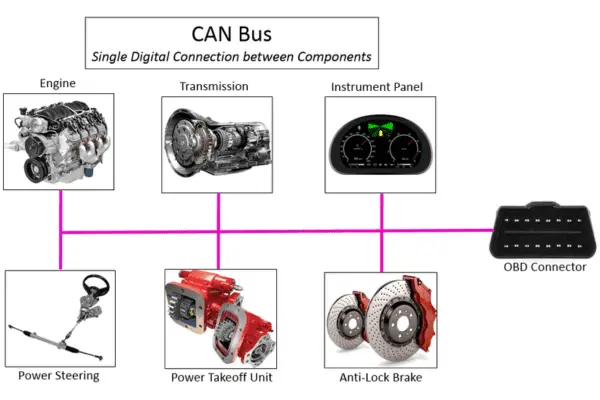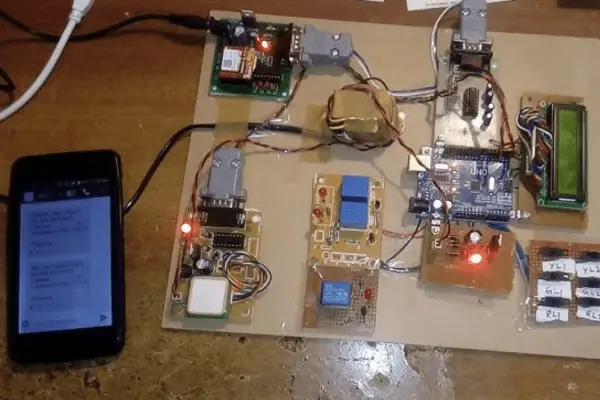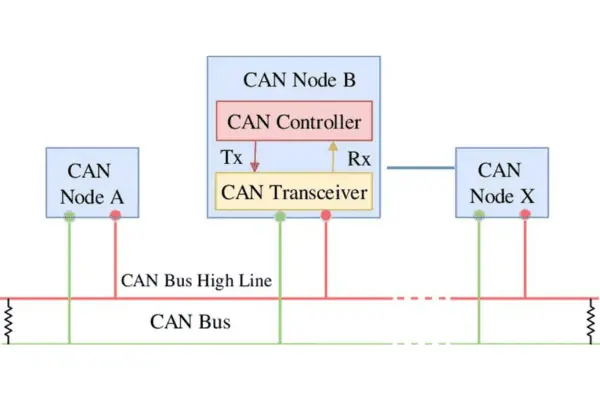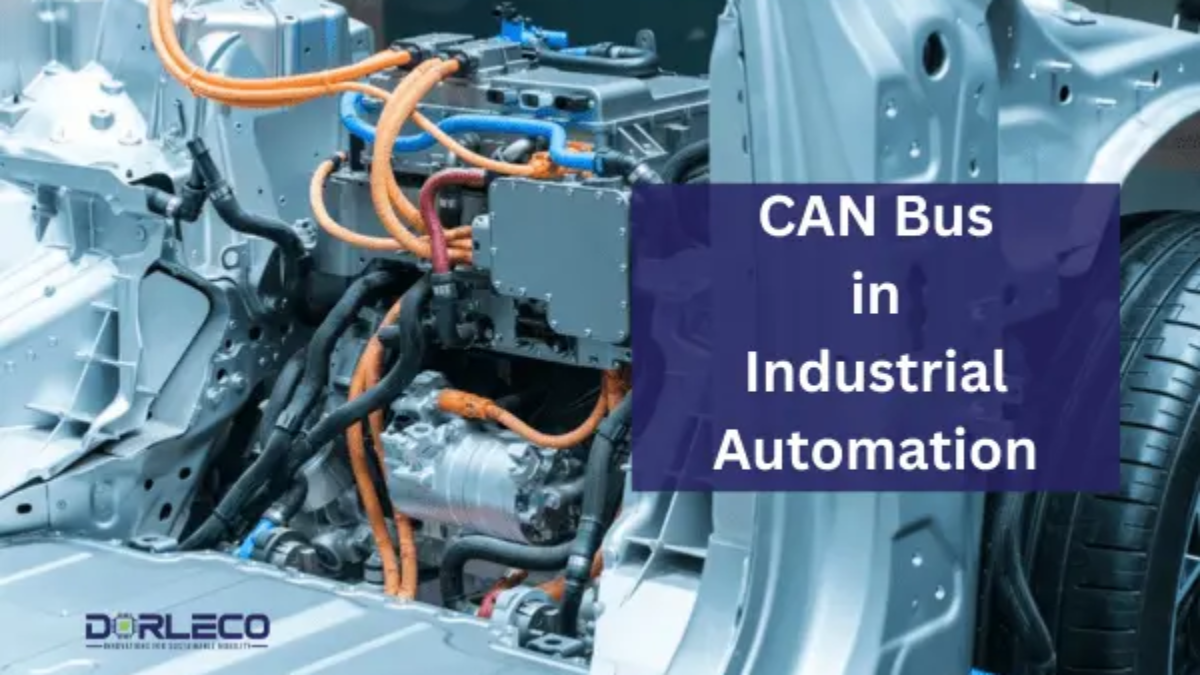Introduction to CAN Bus in Industrial Automation
As a fundamental technology, the Controller Area Network (CAN) bus has changed how machines and devices function and communicate in industrial automation, where precision, dependability, and efficient communication are essential. Industrial automation makes extensive use of the CAN Bus, which was originally developed for the automotive industry. It provides a dependable and flexible means of connecting various components of complex systems.
This introduction details the fundamental concepts, benefits, and applications of the CAN bus in industrial automation.
The Essential Building Blocks of Communication:
The foundation of industrial automation is the requirement for seamless communication between various pieces of machinery and control systems. The CAN bus, which facilitates real-time data and command transfer between sensors, actuators, controllers, and human-machine interfaces, is the backbone of this communication network.
1. Robust and reliable:
Industrial environments can be problematic, with factors like temperature fluctuations, loud noises, and electromagnetic interference posing major challenges. Because the CAN Bus in industrial automation is designed to withstand such conditions, it is very dependable. Its distinct signaling and error-checking algorithms allow for maintaining data transmission accuracy even in noisy environments.
2. Real-time data transmission:
Industrial automation relies heavily on timing. Owing to its exceptional real-time data transmission capabilities, applications that require precise synchronization and low latency should opt for the CAN bus. This ability is critical to manufacturing, robotics, and control system processes.
3. Adaptability and expandability
The scale and complexity of industrial automation systems vary widely. The outstanding scalability of the CAN bus allows for the addition of additional components and devices without requiring a major overhaul of the communication architecture. Because of its versatility and ease of integration, it is a well-liked choice across a range of industries, including aerospace and auto manufacturing.

Benefits of the CAN Bus for Industrial Automation:
1. Optimal Bandwidth Utilization
The CAN bus makes efficient use of its bandwidth by only transmitting relevant data when it is needed. This optimization ensures that urgent information is provided promptly and decreases data congestion, even in networks with several linked devices.
2. Standardized procedure
Standardized communication protocols are used by the CAN bus to enable the integration of hardware made by multiple manufacturers into a single network. Interoperability facilitates system design and maintenance.
3. Lower upkeep costs:
The reliability of CAN bus in industrial automation networks reduces the need for frequent maintenance and troubleshooting. Both labor and downtime costs decrease as a result.
4. Efficiency of energy
The CAN bus’s energy efficiency is one of its main advantages, which is important in circumstances where power consumption is an issue. Networked devices can go into low-power states when they are not actively delivering or receiving data.
5. Various Applications
Many industrial automation applications, such as manufacturing, process control, robotics, vehicle control, and more, can benefit from the flexibility and suitability of the CAN bus. Its adaptability makes it a helpful technology in many different sectors.
6. Data Accuracy:
Data integrity is safeguarded by the use of CAN bus technology’s error-checking techniques. For industrial applications where precision and safety depend on correct data, this functionality is essential.
7. The ability to tolerate faults
In industrial settings, system failures could lead to costly downtime. CAN bus networks are fault-tolerant, meaning that even if one component fails, they can still operate normally. This redundancy reduces the effects of breakdowns and ensures system reliability.

Drawbacks of the CAN Bus for Industrial Automation
The use of the Controller Area Network (CAN) bus in complex industrial systems should take into account its limitations and drawbacks, even though it offers many benefits in the field of industrial automation. The CAN bus has the following drawbacks when it comes to industrial automation:
1. Restricted Bandwidth:
Applications needing high data throughput may have problems because of the CAN bus’s limited bandwidth, particularly when working with a large number of linked devices. This limitation could affect how responsive the network is, especially for apps that need a lot of data.
2. Distance Restrictions:
The purpose of the CAN bus is to facilitate communication across short distances, typically a few meters. Applications that require longer-distance communication may need additional hardware, such as repeaters or converters, which would increase the complexity and cost of the network.
3. Diminished Rates of Data Transfer
The CAN bus may have lower data transfer rates than other, more modern communication protocols. This could be a limitation for applications that need fast data transmission, like sophisticated robots or high-speed production systems.
4. Using determinism in timing
The CAN bus allows for real-time communication; however, it may not offer as much deterministic timing as some other industrial networking technologies. This nondeterminism could be harmful for applications that have tight deadlines.
5. Maximum Message Size:
The amount of data that can be transferred in a single message frame may be restricted by the maximum message size on the map bus. When large data volumes need to be communicated, message fragmentation and reassembly can get complex and slow down transmission.
6. Identification and Intricate Configuration:
Setting up and configuring a CAN bus network can be difficult, particularly for large-scale equipment. Additionally, specialized tools and expertise may be required to diagnose and fix network issues.
7. Inadequate built-in security features
Because security was not considered during the early design phase, the CAN bus does not have any built-in security features. Today’s networked industrial systems make cyber security risks a serious concern, which leaves them exposed.

Conclusion:
In summary, the Controller Area Network (CAN) bus has revolutionized industrial automation with its many benefits, including resilience, scalability, real-time connectivity, and affordability. It now serves as a vital part in facilitating the smooth transfer of control orders and data across devices in intricate industrial systems.
It’s crucial to understand that there are some restrictions on the use of the CAN bus in industrial automation. These constraints include poorer data transfer rates in comparison to more recent protocols, restricted bandwidth, distance constraints, difficulties with deterministic timing, and message size limitations. Moreover, the necessity for extra security precautions while utilizing CAN bus technology in industrial applications has been brought to light by the changing cybersecurity landscape.
The CAN Bus in industrial automation is still an essential tool for many industrial automation applications, despite these disadvantages. Its dependability and versatility keep it a top option across a range of industries, including robotics, vehicle control, manufacturing, and process control.
The CAN bus’s viability for industrial automation ultimately comes down to the particular needs of each application. While taking into account the particular requirements of their projects, system designers and engineers must carefully weigh the trade-offs between their benefits and drawbacks. The CAN bus will probably keep developing as industrial technology advances, resolving some of its shortcomings and continuing to be an important communication platform for industrial automation systems.
Send an email to info@dorleco.com to examine our top-notch VCU products and services and to learn more about our software development capabilities for battery-specific applications.

